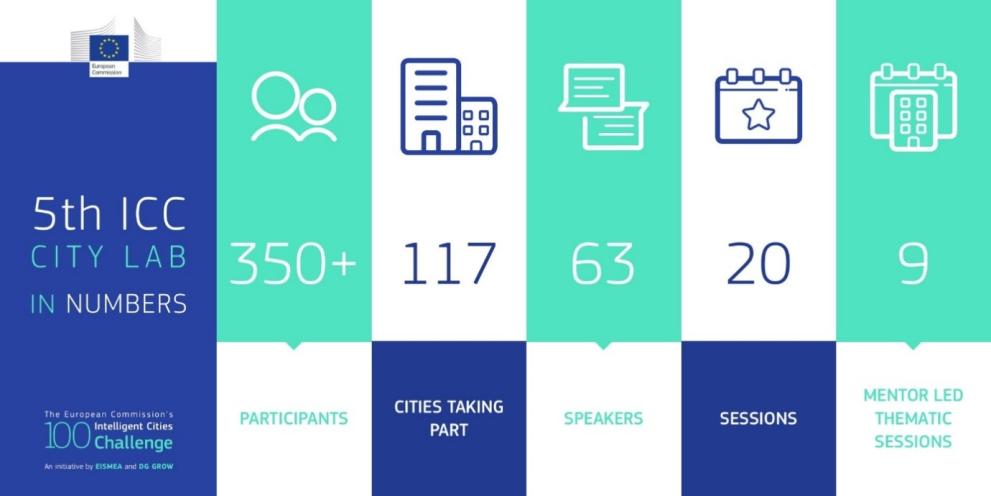
Over 10 days, 117 cities attended 20 inspiring sessions, full of great exchanges amongst cities and stimulating conversations between more than 350 participants. The event gathered 63 speakers from Intelligent Cities Challenge participating cities, from companies, academics, researchers and other public bodies.
While most of the sessions were reserved for the Intelligent Cities Challenge city teams, certain sessions were open to the public. You can find summaries of these sessions below:
- Cities' response to Ukraine crisis,
- Engagement of local ecosystems and collaborative governance
- Artificial Intelligence – Redefining urban innovation.
In particular, the session on Engagement of local ecosystems and collaborative governance was moderated by Igor Kalinic, Head of Sector, Competitiveness & Internationalisation, Unit I.02 SMP / SME Pillar from EISMEA. The session highlighted how cities can integrate the public and private sectors to develop sustainable, inclusive solutions. Collaborative governance is key to implementing the European Green Deal through concrete local actions. These can instigate social innovation and engage businesses and citizens to resolve specific urban challenges and participate in the decision making process for the future of the city.
This two-week event also held nine dedicated thematic sessions led by Mentor cities, all part of the Intelligent Cities Challenge network:
- Porto (Portugal) held a session about the development of digital services;
- Rijeka (Croatia) about the thematic track Upskilling and reskilling;
- Toronto (Canada) regarding the Digital City Initiatives developed by the city;
- Singapore about water and waste management;
- Amsterdam (The Netherlands) put a focus on “Building Talent Development Ecosystems";
- Aarhus (Denmark) regarding the citizen engagement in the green transition;
- Hamburg (Germany) about the Urban Data Platform developed by the city;
- Antwerp (Belgium) presented how to design the city digital services from a human centric point of view;
- Milan (Italy) put a focus on their Air and Climate Plan.
The key takeaways from these sessions can be found here. The 5th city lab also included two transversal workshops: on public procurement and on open data.
The first workshop speakers (representatives from cities of Ghent, Haarlem and Oslo, representative from the Solar Impulse Foundation and DG GROW) agreed that public procurement is a key tool for cities to implement innovative solutions and reach their sustainability objectives. The second workshop focused on the topic of cities needs for a digital sustainable Urban development.
The initiative will be concluded by the ICC Conference and Mayors Summit between 15-16 November 2022 at the Smart City Expo in Barcelona, where participating cities and their Mayors will gather to take a stock of all the project's results and improvements in cities' digital and green transition since 2019.
Stay tuned because this is not the end: thanks to the funding under the Single Market Programme – SME Pillar, the initiative will be extended and will smoothly continue beyond December 2022 as 'Intelligent Cities Challenge 2.0', with a new call for expression of interest for additional cities to join and benefit from the initiative.
For more information, you may contact EISMEA-COSME-INTELLIGENT-CITIES ec [dot] europa [dot] eu (EISMEA-COSME-INTELLIGENT-CITIES[at]ec[dot]europa[dot]eu).
ec [dot] europa [dot] eu (EISMEA-COSME-INTELLIGENT-CITIES[at]ec[dot]europa[dot]eu).
Details
- Publication date
- 6 July 2022
- Author
- European Innovation Council and SMEs Executive Agency
